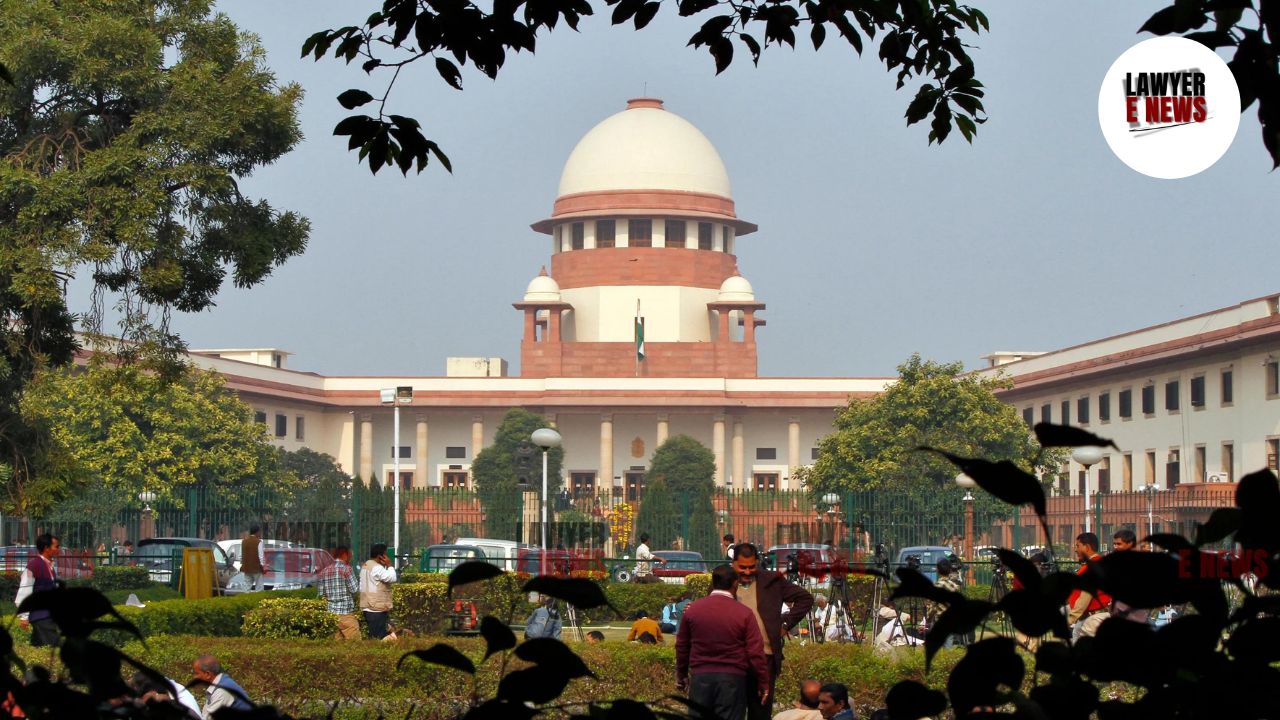-
by Admin
15 February 2026 5:01 PM



Supreme Court of India addressing the appellant's statutory right to seek restoration of an appeal under Order 23, Rule 3 of the Code of Civil Procedure, 1908 (CPC) following alleged fraud and non-compliance with a compromise agreement. The Court set aside the Rajasthan High Court’s dismissal of the restoration application and emphasized that statutory remedies under the CPC are independent of judicial permissions or contractual limitations.
"Statutory Remedies Cannot Be Curtailed by Judicial Orders or Agreements" – Supreme Court
The Bench comprising Justices Pamidighantam Sri Narasimha and Manoj Misra held that the appellant’s claim of fraud and dishonored cheques constituted grounds for seeking restoration of the appeal. The Court observed, “When the terms of a compromise are violated, statutory remedies available under the CPC cannot be denied simply because prior judicial orders do not expressly grant such liberty. Access to statutory remedies is a fundamental principle of justice.”
The Court further clarified that under Order 23, Rule 3, the validity of compromise agreements can be questioned, particularly when allegations of fraud or voidable agreements arise.
The appellant, Navratan Lal Sharma, initially filed a suit for declaration and injunction, challenging the alleged forgery of powers of attorney and subsequent sale deeds executed by the respondent. When the trial court dismissed the suit in 2014, Sharma filed a first appeal before the Rajasthan High Court.
During the pendency of the appeal, the parties entered into a compromise agreement on May 18, 2022, which required certain payments to be made by the respondent. The High Court disposed of the appeal on July 14, 2022, based on this compromise.
However, the respondent allegedly failed to comply with the agreement, including the dishonoring of issued cheques. This prompted the appellant to file for restoration of the appeal. The High Court dismissed this application on October 19, 2023, stating that its prior order disposing of the appeal had not granted liberty for restoration, even in case of non-compliance.
The case raised the following legal questions:
Whether a court’s prior order denying liberty for restoration of an appeal precludes the exercise of statutory remedies under Order 23, Rule 3 of the CPC.
Whether allegations of fraud and dishonored terms in a compromise agreement justify the restoration of a previously disposed appeal.
The interpretation of Section 28 of the Indian Contract Act, 1872, which declares agreements restricting access to legal remedies as void.
The Court held that restoration of an appeal under Order 23, Rule 3 CPC is a statutory remedy that cannot be curtailed by either a judicial order or contractual terms. Referring to Banwari Lal v. Chando Devi (1993 AIR 1139) and Pushpa Devi Bhagat v. Rajinder Singh (2006) 5 SCC 566, the Bench reiterated that a party aggrieved by a compromise decree has no remedy other than to approach the court that recorded the compromise.
The Court observed: “No appeal or fresh suit is maintainable against a compromise decree under the CPC. The only remedy available is to approach the court which passed the decree and establish that the compromise was unlawful or invalid.”
The Court acknowledged the appellant’s allegations of fraud and noted that Order 23, Rule 3 explicitly allows the court to examine the legality of agreements, including those deemed voidable under the Indian Contract Act, 1872.
The Bench emphasized: "The Explanation to Order 23, Rule 3 clarifies that agreements which are void or voidable under the Contract Act cannot be deemed lawful. A party alleging fraud has the right to challenge the legality of such compromises through a recall application."
The compromise agreement in this case included a provision (Para 4) allowing the appellant to seek restoration of the appeal if the respondent failed to comply with its terms. The Court noted that this clause was consistent with Section 28 of the Indian Contract Act, which voids agreements restricting access to legal remedies.
The Court stated: "Agreements restricting statutory remedies or access to justice are void under Section 28 of the Contract Act. Public policy demands that courts ensure access to justice and not curtail remedial mechanisms provided by law."
The Supreme Court set aside the Rajasthan High Court’s October 19, 2023 order and remanded the matter for fresh consideration. The Bench directed the High Court to decide the restoration application on its merits, without being influenced by the earlier denial of liberty to restore.
The Court concluded: “Statutory remedies are fundamental rights of parties and cannot be overridden by prior orders or restrictive clauses in agreements. The High Court must now examine the recall application based on its merits.”
This judgment underscores the Supreme Court's commitment to ensuring access to statutory remedies and upholding principles of justice in cases involving compromise decrees. By affirming the validity of restoration applications under Order 23, Rule 3, the Court has reinforced the right of litigants to challenge non-compliance with agreements and allegations of fraud.
Date of Decision: December 12, 2024
